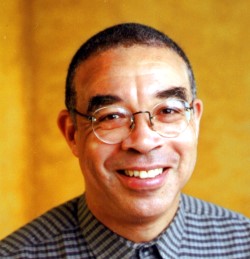Buddhist academic and translator Jose Cabezon has a great article in the latest issue of Buddhadharma about some of the peculiar ideas many Buddhist traditions have about sex (about which most Western practioners are unaware), and how he reconciles those ideas with the love and esteem he feels for the textual tradition as a scholar. And he quotes Salt-N-Pepa.
You can read the beginning of the article free here, but it is totally worth buying the issue to read the whole thing.
The Buddha himself, in the early Sutra Pitika, did not attempt to micromanage anyone’s sex life. As Cabezon describes it, sexual misconduct “was simply understood as adultery.” However, later Indian Mahayana heavies like Asanga and Vasubandhu, through to Tibetan luminaries of all traditions such as Gampopa, Tsongkhapa, and Dza Patrul, got a lot more, er, involved when it came ot making rules for the laity. Among their lists of dos and don’ts:
- No gay sex, period.
- No oral or anal for straights–keep it very vanilla, folks
- No masturbation
- No sex during the daytime
- Five orgasm per night limit for dudes.
Rather generous that last one, at least. Oh, and hookers are no prob.
This list is, I’m sure, more than a little onerous for everyone, but as a gay man Cabezon was really feeling the squeeze. I guess he’s expected to just hold out for fun dreams once in while.
He resists the temptation to blow off the texts causally, however. What he recommends is much more interesting–a three step process of 1) becoming as familiar with the textual tradition as possible, because ignoring or refusing to confront it is not an option 2) reflecting critically on it, to see if it accords with reason and our sense of right and wrong, and 3) using modern critical tools to assess the context in which these rules were formulated, to get a sense of why they make have been instituted (monks who thought too much in vinaya-like terms and got carried away, in this case), and what the spirit of the law may have been. As he writes
When we put together these various aspects–philological, historical, rationalist–this is where I believe we end up: First, there is no scriptural warrant for the more restrictive, scholastic formulation of the doctrine. It was elaborated by celibate monks who inappropriately read monastic norms into lay sexuality. The individuals who did this were great scholars and saints, but on this issue, they simply got it wrong. . . Second, the doctrine is androcentric and therefore unjust . . and third . . . the more elaborate doctrine cannot be justified on rational grounds.
Have to say I’m with him on this one.

